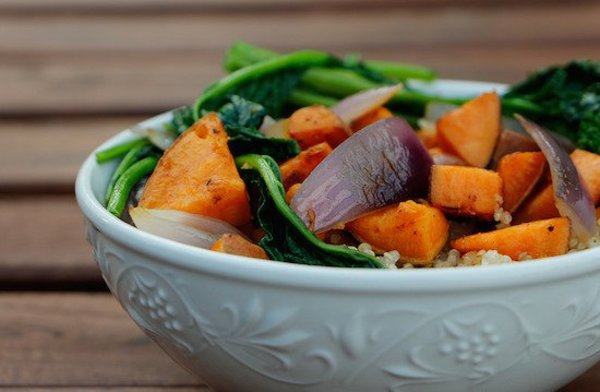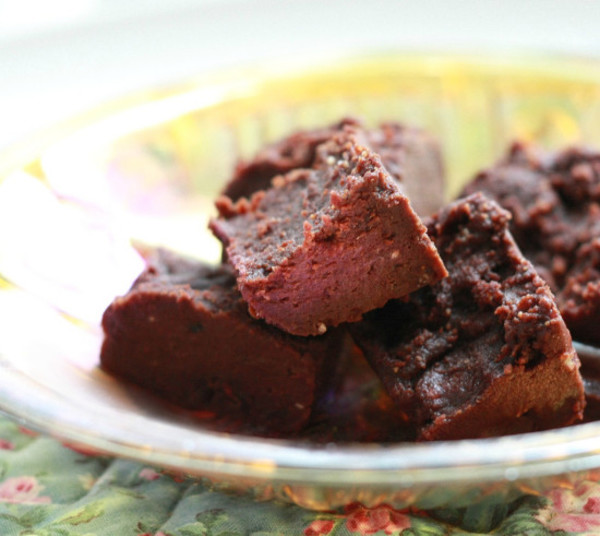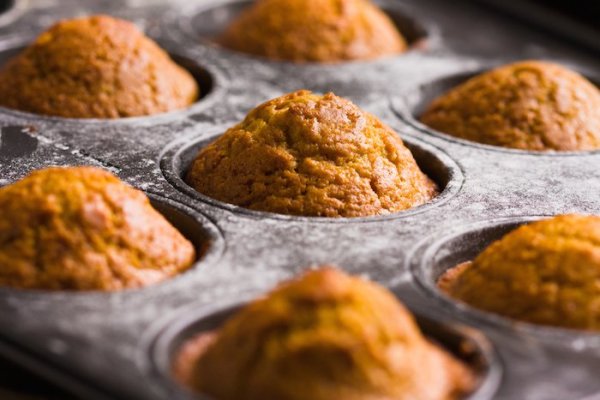11 Coconut Oil Recipes That’ll Make You a True Believer

If the following 11 coconut oil recipes don’t persuade you to replace your regular butter or vegetable oil, I don’t know what will.
Coconut oil is one of the most ideal plant-based oils out there – it offers a load of health benefits, tastes delicious, and is ideal for alkalinity-conscious cooking. Learn why coconut oil is unique and how it can be a steady player in your daily dietary regimen.
Fat Your Body Loves
Coconut oil contains 14 grams of fat and 126 calories per tablespoon. That may seem like a lot, but it is a fat after all and is meant to be consumed in moderation. What makes coconut oil special, however, is the quality of its fat.
Coconut oil is two-thirds medium-chain fatty acids (MCFAs). Most vegetable or seed oils are made up of long-chain fatty acids (LCFAs). Unlike MCFAs, LCFAs are harder for the body to break down, put more strain on the pancreas and liver, are usually stored as fat in the body, and deposited in the arteries, often as cholesterol. MCFAs, like those found in coconut oil, are smaller and are able to permeate cell membranes more readily, making them easier to digest. MCFAs are sent directly to the liver, where they are converted into energy rather than being store as fat. MCFAs also stimulate the body’s metabolism, contributing to weight loss.
The majority of coconut oil’s MCFAs are comprised of the saturated fat lauric acid. The body converts lauric acid into monolaurin, a substance with antiviral, antibacterial, and antiprotozoal properties. Coconut oil contains more lauric acid than any other substance on Earth!
Refined Vs. Unrefined
Before you jump the gun and buy any old coconut oil, filter your options first. There are many low-quality, over-processed versions of coconut oil out there – choosing the right brand can be the difference between benefiting a lot or not at all.
The first relatively broad point of distinction is refined versus unrefined coconut oil. Refined coconut oil has been bleached and deodorized. It is usually tasteless and odorless and able to withstand higher cooking temperatures. Refined coconut oil does not offer the same health benefits as unrefined, raw, virgin coconut oil, but it still retains most of its MCFAs. It is a better choice for dishes that are cooked or fried at higher temperatures or dishes that you don’t want to infuse with the coconut taste.
Most coconut oil you come across is refined, unless otherwise stated. However, some brands will tamper with the coconut oil to either preserve it or optimize output. Sodium hydroxide may be used as a preservative while chemical solvents may be used to extract the most oil as possible from the coconut meat. Refined coconut oil may be partially hydrogenated as well, meaning it will contain trans-fats.
On the other end of the spectrum is unrefined coconut oil, generally labeled as “virgin” or “extra-virgin”. Unrefined coconut oil is generally made from the first pressing of fresh, raw coconut without the addition of chemicals. There are two ways to produce unrefined coconut oil – through quick drying or wet milling processes. Quick drying refers to a method that involves the drying of the coconut meat and then mechanical extraction of the oil. Wet milling refers to a method that involves extracting coconut milk from the fresh meat and then separating the oil from the milk using enzymes or centrifuge. These processes do not require bleaching or additives. Unrefined coconut oil retains a subtle coconut scent and aroma as well as an uncompromised nutritional profile.
The takeaway: for optimal nutritional benefits and a delicate touch of coconut to your meals, opt for unrefined coconut oil. Refined coconut oil is better for cooking needs, but you have to make sure that you find a reliable brand that does not contaminate its coconut oil with chemicals and other harmful add-ins.
How to Use Coconut Oil
Coconut oil is a great complement to your diet and helps you to get in those healthy fats that ultimately contribute to your fitness and can help you lose weight rather than clog your arteries or cause weight gain. It’s a necessary kitchen pantry.
Coconut oil is high in saturated fat, which makes it slow to oxidize and thus less likely to go rancid. In fact, coconut oil can stay fresh for as long as 6 months at 75 degrees Fahrenheit. It does not require refrigeration and will fare just fine in your pantry, away from direct sunlight.
You can find ways to use coconut in just about every meal of the day. Coconut oil is incredibly versatile and a great clutch for people who are vegan or vegetarian – it provides a reliable source of fat the keeps you full without weighing you down.
On a day-to-day basis, use coconut oil as a spread on your toasted whole-grain bread, an add-in to your smoothie, or as the grease for your cooked vegetables.
If you need more inspiration, look no further than these coconut oil recipes, which incorporate the ingredient in a delicious and practice way. Go loco for the coco, and you’ll never look back.
Roundup of 11 Coconut Oil Recipes

1. Vegan Chocolate Chip Cookie
Who needs Grandma when you’ve got this recipe for the ultimate vegan chocolate chip cookie?! Made with oats, Kamut flour, maple syrup, almond milk, and coconut oil, these cookies take (most of) the guilt out of the cookie jar.

2. Hawaiian Quinoa Pilaf with Sweet Potato, Coconut, and Leafy Greens
Take your soul to the islands with each bite of this scrumptious quinoa pilaf dish, complemented with sweet potato that is cooked in none other than coconut oil itself. This dish packs in the fiber, protein, and healthy fats with each bite.

3. Non-Toxic Homemade Sunscreen
Okay, so this recipe isn’t necessarily made for you to eat, but it highlights the sun-protecting value of various plant-based butters, oils, and essential oils, including coconut oil, which has a natural SPF of 4. Almond oil (natural SPF of 5), shea butter (natural SPF of 5), carrot seed essential oil (natural SPF of 30-40), zinc oxide (natural SPF of 20+), myrrh essential oil, and lavender oil complement the coconut oil, making for a rich lather and delightful aroma that is only piqued by the sun’s warm rays.

4. Coconut Milk Pancake Recipe
While there is no coconut oil in the batter of these pancakes, coconut oil makes for the best cooking oil for them. Why ruin the wholesomeness of the recipe with harsh oils that only end up adding traces of acidic toxins to your beautiful Sunday breakfast/brunch dish? Coconut oil withstands high cooking temperatures and is the perfect accompaniment to sweet pancakes.

5. Vegan, Gluten-Free Date & Coconut Brownies
There’s nothing to regret after consuming not one, not two, not three, but four pieces of these brownies (said no one, ever…until now!). Cashews, dates, applesauce cane sugar, coconut milk, figs, and coconut oil join forces to create a vegan and gluten-free alternative to a dessert classic.

6. Vanilla Coconut Flour Paleo Cupcakes
Paleo and gluten-free, these vanilla coconut flour cupcakes are bolstered by not just coconut oil but also coconut flour and coconut milk. The glaze also features coconut oil.

7. DIY Coconut Vanilla Sugar Body Scrub
Another beauty recipe, this body scrub is made in the comfort of your kitchen with sugar, olive oil, coconut oil, and essential oils. Use it to scrub away impurities on the surface of your skin and infuse it with moisture and natural fragrance.

8. Raw Cocoa Coconut Fudge Recipe
This cocoa fudge recipe hinges on coconut oil and its ability to firm up into a fudge-like consistency. This recipe is completely raw and only involves 4 ingredients!

9. Vegan Apple Pie Bars with Date Caramel Sauce
Coconut oil is the perfect replacement for butter in making pastry crust or a crumble topping. In this apple pie bars recipe, coconut oil holds the base and the topping together. On top of being vegan, the bars are sweetened with coconut palm sugar and made with spelt flour, spices, and walnuts.

10. Gluten-Free Vegan Pumpkin Muffins
Almond flour, gluten-free oats, coconut palm sugar, flax seeds, pumpkin, and coconut oil deem these muffins a breakfast you can feel good about.

11. Vegan Smoothie with Maca and Raw Chocolate
This recipe is incredibly grounding, packed with superfoods – hemp, chia, cacao, maca, and maple syrup – as well as coconut oil. It’ll boost your energy and satisfy your hunger.
Related on Organic Authority
Coconut Oil, The Delicious Health Benefits
Coconut Oil Shows Promise in Preventing Deadly Blood Infection
4 Heavenly Uses of Coconut Oil
Coconut Oil Image from Shutterstock

